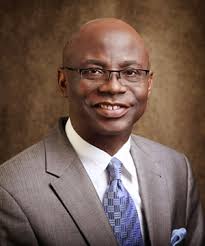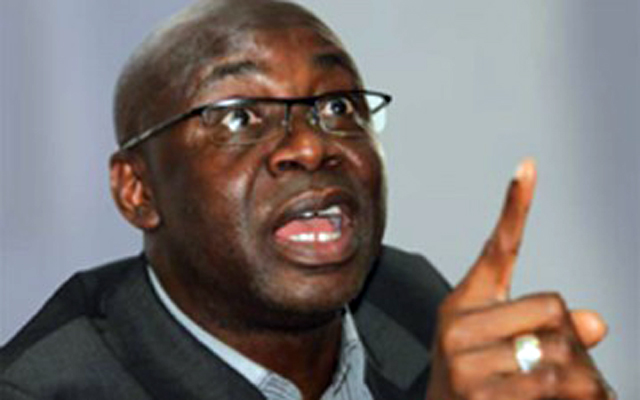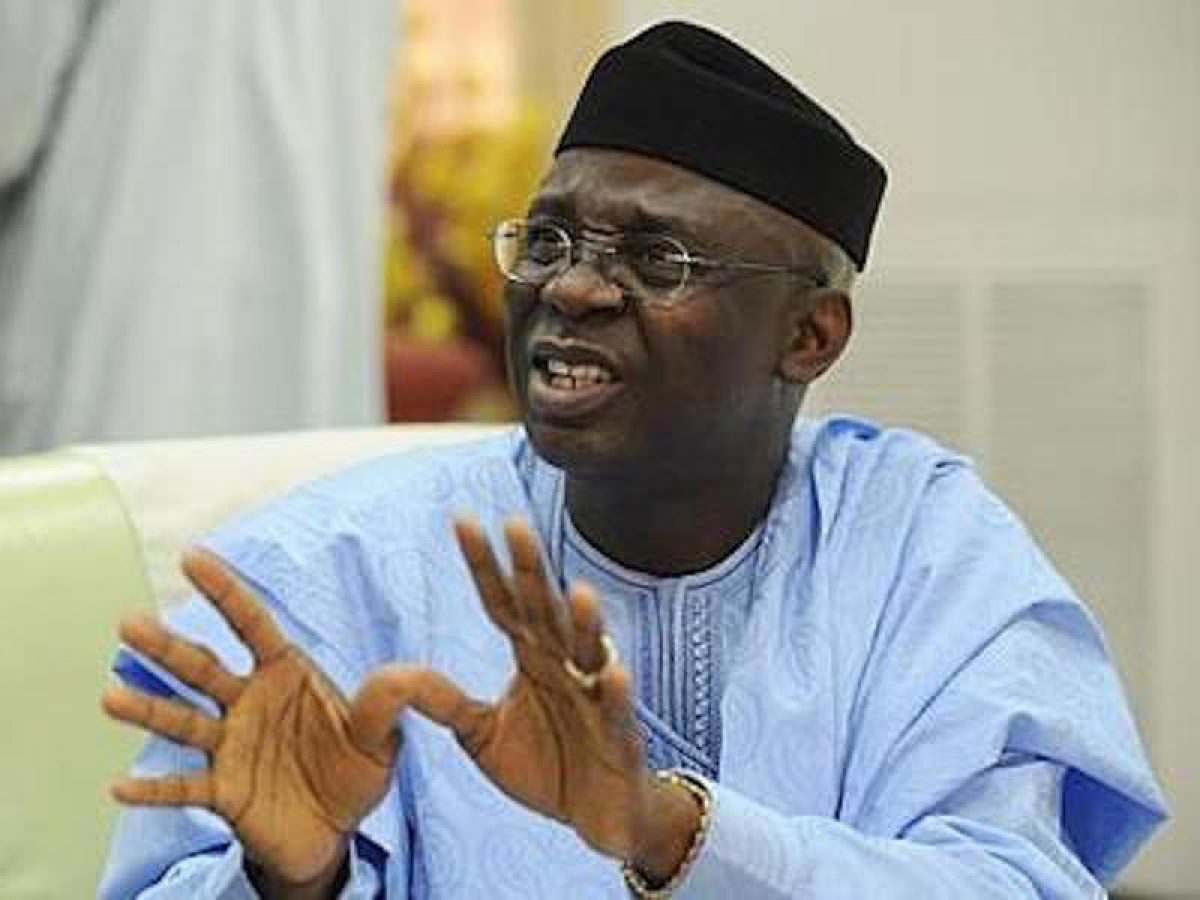Pastor of Citadel Global Community Church, Pastor Tunde Bakare has described the events of the last few weeks in Nigeria as a people movement that will usher in a new Nigeria.
He made the observation in a 30-page broadcast on October 25 tagged, The building blocks of nationhood: A blueprint for the New Nigeria
The broadcast, which dwelt extensively on the agitation of the EndSARS movement also gave practical solution to Nigeria’s nagging problems.
He described the events of the past weeks as the crescendo of an era and the beginning of another.
He traced the evolution of a new era from the time the people Edo State defied the political establishment to make their voices heard and their votes count.
“In the past couple of weeks, that wave has been transformed into a tsunami of people movement led by our young people who have had enough of the horrendous brutality of the now-disbanded Special Anti-Robbery Squad (SARS). I believe that this wave of the people movement is the physical manifestation of the birth pangs heralding the New Nigeria. As I observed the End SARS protests, I could not but conclude that we are witnessing the crescendo of an era and the beginning of another.”
He recalled that the Save Nigeria Group that he formed 10 years ago was with the goal of restoring the voice of the voiceless noting however that the series of protests that the group led were done with the understanding that they were dealing with a vicious system.
EnDSARS: Its implications
The broadcast also addressed in detail the implication of the EndSARS movement while also chronicling names of some of those who were victims of the anti-robbery squad especially victims of the recent shooting at the Lekki Toll gate as well as police officers who were true to their calling in fighting crime in the country.
He said, “Our hearts bleed at the memory of the peaceful protesters at the Lekki Toll Gate who were shot and killed on Tuesday, October 20, 2020, by the Armed Forces of the Nigerian state as they held up the Nigerian flag; young compatriots pledging allegiance to ‘one nation bound in freedom, peace and unity’ as they sang our national anthem in their final moments.”
The church then observed a moment of silence for the dead at the Lekki toll gate and many others, named and unnamed, who have been unjustly killed by agents of the Nigerian state praying that their souls would rest in peace.
Call for justice
He urged President Muhammadu Buhari to ensure that “those who ordered armed soldiers to fire on innocent citizens are fished out and made to face the full weight of the law. The officers who carried out such wicked acts should also be prosecuted under international legal standards.”
He regretted that the protest was hijacked by hoodlums which led to the loss of lives and properties across the country while also redefining the philosophy of the EndSARS protest.
Deconstructing SARS:
While rechristening SARS as State-Aided Robbery Squad (SARS). He said, “Beyond Police Brutality Any attempt to resolve the issues must go beyond the surface to excavate underlying factors. Our overarching challenge is systemic governance failure which, over the decades, has worsened the living conditions of Nigerians. As a result, although the Special AntiRobbery Squad has been disbanded, the spirit of SARS continues to prowl unchecked.”
He insisted that there must be an end to all varied forms of SARS in the country saying, “for too long, the Nigerian people have been subjected to a less than desirable nation. For too long, the citizens of our country have been served insecurity, poverty and underdevelopment. For too long, our people have been denied access to the basic goods that make for a decent standard of living. We have been denied quality education, good healthcare, quality roads, access to electricity, and much more. The brutal impunity of the gun-wielding policeman or SARS operative is the symbol of this bad governance experience.
“SARS is also the symbol of that politician who loots public funds to build a political war chest and spends it during elections buying votes, hiring thugs, intimidating voters and robbing the people of the power of choice. SARS is the symbol of the electoral officer who colludes with politicians to rob the people of their voice as expressed by the vote.
“SARS is the symbol of that appointed public official who, with a stroke of the pen, robs the people of funds that are allocated to education, healthcare, and other social infrastructure. SARS is the emblem on the agbada of the legislator who robs the people through budget padding, outrageous allowances, and unaccounted-for constituency projects. SARS is the symbol of the corrupt judge who compels Lady Justice to remove her blindfold to check whether the person in the dock is a poor phone thief or a wealthy pension thief so as to sell justice to the highest bidder.
He averred that no degree of brutal repression of protesters can quench the flame of protests in the hearts and minds of the Nigerian people. “Your bullets may drive them off the streets, but your bullets cannot pierce their spirits or puncture their resilience.”
The Building blocks
Before unveiling the building blocks of nationhood, Bakare addressed the issue of how the older generations of Nigerians have failed the youth.
Describing the older generation as the independence generation he said, “At independence, we inherited a promising nation, but we are bequeathing a predatory nation to the young generation. We inherited a nation whose structural foundations were built on principles of true federalism, a nation in which the diverse groups had the freedom to determine their destinies, but we are bequeathing a unitary nation, federal only in name, in which subnational expressions are suppressed by an overbearing centre.
“We inherited a nation in which free and functional basic education, as well as affordable and quality tertiary education, guaranteed the path from penury to prominence, but we are bequeathing a nation whose educational system is lying-in-state. We inherited a nation where a young graduate was guaranteed immediate employment with housing and a car loan, but we have bequeathed a nation in which our youth are largely underemployed, unemployed or Yahoo-employed.
“We inherited a relatively secure nation characterised by a thriving nightlife and a peaceful village life, but we have bequeathed to the younger generation a society grappling with kidnapping, banditry, terrorism, and police brutality. We inherited a banner without stain, but we have introduced a new colour to our green-white-green: blood red. This is why there has been a definite generational spin to the protests.
“It is why we hear rallying cries like ‘You messed with the wrong generation.’ It is why young people are telling stories of how they went out to protest in spite of the warnings of their parents. It is why you hear the indicting lamentation: ‘If before I was born the generation that was there had fought for a great Nigeria, I won’t be here doing this. It is why some protesters have asked why the likes of Prof. Soyinka, Tunde Bakare, Oby Ezekwesili, Pat Utomi, Femi Falana, the so-called ‘senior activists in Nigeria,’ are not on the streets.”
He then apologised on behalf of the older generation asking however that for the recent agitation to be meaningful the young people should take advantage of the electoral system to bring about change.
Protests: Where we got it wrong
He chronicled the history of protests in Nigeria declaring that by its brutal repression of unarmed protesters, “the Nigerian state has blood on its hands. That agents of the Nigerian state would resort to using live ammunition to silence fellow citizens, fellow human beings, is heart-rending. Their blood will yet speak, as truly as there is a God.” He said.
He noted that the laudable creative expressions of the protests were being threatened by a descent into anarchy even if stage-managed as alleged. The protests had also begun to infringe on the rights of law-abiding Nigerians. “It was clear that a change of strategy was required to avert loss of lives, to safeguard the credibility of the movement, and to strengthen the gains made. To this end, we reached out to the presidency and challenged the government to be empathetic to Nigerians and to address the demands of protesters.
“We also reached out to some prominent organisers of the protests to fashion a way out of the debacle. Unfortunately, our collective entreaties to some of the young arrowheads of the End SARS protests were ignored. Our past experience with organising protests had shown that there comes a time when strategies are re-evaluated.”
He described how the Save Nigeria Group carried out protests suggesting that the EndSARS protests must embrace Generational integration, rather than generational shift. “As I have said in times past, the hindsight of the older generation must propel the foresight of the younger generation. The dreams of the fathers and mothers must be the backdrop of the visions of the sons and daughters. The wisdom of the elders must guide the knowledge of the youth as we build the Nigeria of our dreams. Where there are no patriarchs and matriarchs, there will be no offspring.”
He said, “The Nigerian dream is the hope of every Nigerian who lost a job, or a business, or even a loved one, to the COVID-19 pandemic, but who has refused to stay down and is now re-energised and propelled by that tireless bounce back spirit that makes us Nigerians.”
On the Nigeria dream
He said further, “The pathway from the present state of our nation to the Nigeria of our dreams is paved with transformational landmarks in four dimensions, namely: Culture, Structure, Infrastructure and Intra-Structure. These are the four strong pillars around which the Citadel Global Community Church (CGCC) is built as a governmental, authoritative, powerful institution, generating solutions, influencing policy, and providing clarity; and these are the four building blocks from which a new nation can be forged.
“Our National Culture The first landmark in the journey from the status quo to the Nigeria of our dreams is the birth of a New Nigerian culture. The cultural dimension of nation-building is the value system or value superstructure upon which the nation must be built. It brings to focus what I call the 4 ‘IDs’ of our nationhood, namely the Nigerian Identity, the Nigerian Idiosyncrasy, the Nigerian Idiocy, and the Nigerian Ideal.
“To address the current issues plaguing our nation and to make meaningful progress towards the Nigeria of our dreams, we must resolve certain unanswered questions that border on the Nigerian Identity. Who is a Nigerian? What is the irreducible minimum standard of decency below which no Nigerian must fall?”
He recommended revisiting the Nigerian Charter for National Reconciliation and Integration20 which was unanimously passed by delegates to the 2014 National Conference. “We must then deconstruct the Nigerian Idiosyncrasy – those modes of behaviour that have defined us over time for better or for worse – our exuberance, our ostentation, our love of pleasure, our aversion to risk, our resilient tolerance of adversity, our inclination to ethnic identities, and the religiosity that encourages us to ‘leave am for God.’ We must tell ourselves home truths as to how these modes of behaviour have contributed to our current state and how they could be geared towards unleashing our collective potential and building the Nigeria of our dreams.”
He posits that “We need leaders like Nehemiah who quelled a protest, not by the force of arms, but by the moral authority of exemplary, sacrificial leadership. We need leaders like the late Nelson Mandela who converted institutions of division and oppression to symbols of unity and empathy.
We need sensitive leaders who are not ashamed to shed tears with the wounded and who can tell the broken, ‘Your pain is my pain, and I will do everything in my power to lift your burden.’ The New Nigerian culture is what has ignited in the hearts and minds of our young people a new wave of patriotism, a rejection of the status quo and the demand for accountability among public servants.”
Way forward
He urged the youth to step into politics to ensure that “the best of us lead the rest of us.”
Going forward Bakare said It has become clear that an excessively centralised government cannot sustain a culture of responsive leadership and responsible citizenship “we must demand a government that is close enough to facilitate our welfare and strong enough to provide security. This is why I am confident that the current wave of people movement and individual responsibility will ultimately lead to the restructuring of our nation.. .Our cities and communities must host affordable and decent housing units, functional education and health facilities, industrial facilities, sports and recreation facilities, all linked by efficient multimodal transportation networks and broadband technology, protected by intelligent security architecture, and powered by sustainable energy solutions.”
He also called for a new approach to youth development in the context of the National Youth Service Corps (NYSC). He recommends that “NYSC becomes an optional two-year programme with the first year spent on military training for our young people and the second year spent on agro-entrepreneurship.
He also recommended that a minimum of National Diploma (OND) obtained from a recognised polytechnic, or two years in a recognised university with a cumulative grade point average not lower than a second-class lower division, be among the prerequisites for admission into the Nigeria Police Academy. This will compel an upgrade of the Nigeria Police Academy to a degree-awarding tertiary institution affiliated with a Nigerian university, transform the Nigeria Police Force into a Nigeria Police Service, and further build the bridge between Nigerians and the Police.”
He then appealed to the Nigerian youth not to lose hope in Nigeria. “I encourage them to keep hope alive because the Nigeria of their dreams, the New Nigeria, is within reach. I appeal to the older generation to speak up at this point in defence of our hard-earned freedom.”
You can get the full speech from www.tundebakare.com




